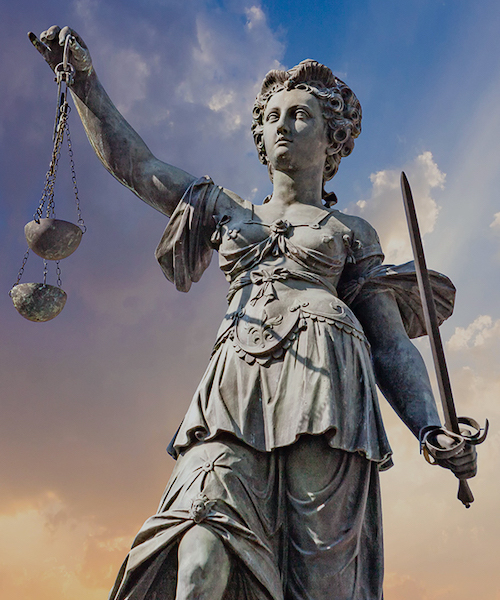& Experienced
Charges Filed: What Happens in a California Criminal Case After Charges Filed
1. Charges Filed: Arraignment & Plea
- Arraignment Hearing
- First court appearance after charges are filed: Complaint or Indictment is read, rights are explained, and bail is set.
- In misdemeanor cases, we often appear on your behalf, so you don’t miss work; felony arraignments usually require your presence.
- Plea Options
- At arraignment, we enter “not guilty” to buy time for evidence review.
- Other pleas (e.g., “guilty,” “not guilty by reason of insanity,” “no contest,” “once in jeopardy”) are not discussed here—this page focuses on the atypical criminal case where a “not guilty” plea is the norm.
- Immediate Strategy
- From the moment of arraignment, we:
- We request the discovery from the District Attorney or prosecuting agency.
- We strategize on whether to interview defense witnesses, whether to bring pre-trial motions, (e.g., suppression, discovery demands) to seek dismissal or reduced charges.
- We identify weaknesses in the prosecution’s case.
- From the moment of arraignment, we:
2. Pretrial Phase: Motions, Deadlines & Negotiations
- Speedy Preliminary Hearing (Felonies Only)
- If you’re in custody, you have a right to a preliminary hearing within 10 court days (or 60 calendar days) of arraignment.
- If you’re out of custody, we typically waive those deadlines so we can gather all evidence first (police reports, lab results, body-cam footage, etc.).
- Speedy Trial Rights
- Felony Cases (Post-Prelim Hearing): Once the preliminary hearing concludes, you attend an Arraignment on the Information. At this second arraignment the DA must bring you to trial within 60 calendar days.
- Misdemeanor Cases:
- In Custody at Arraignment: Trial must start within 30 days unless you waive time.
- Out of Custody at Arraignment: Trial must start within 45 days unless you waive time.
- Any Other Time Out of Custody: If you initially waive time and then later change your mine, then trial must start within 30 days of your request to “pull time”.
- Discovery Process
- Initial Request: We serve a written discovery demand on the DA immediately after arraignment (or as early as possible).
- Receipt & Inventory: When the DA produces evidence—police reports, witness statements, videos, forensic data—we inventory every item and flag missing or incomplete materials.
- Follow-Up Requests: If additional items aren’t produced, we send documented, dated requests specifying what’s still needed.
- Motion to Compel: If the DA fails to comply, we file a motion to compel to enforce full disclosure.
- Leveraging Discovery
- Reviewing all materials uncovers inconsistencies (e.g., undocumented gaps in the chain of custody, conflicting witness accounts).
- Every communication with the DA is tracked to demonstrate our diligence and to hold the prosecution to its obligations.
- Preliminary Hearing Strategy (Felonies)
- After we’ve reviewed discovery, we decide whether to demand the preliminary hearing.
- At that hearing, if we expose fatal flaws (e.g., lack of probable cause, illegal search), the judge can dismiss the felony or force the DA to reduce charges.
- Plea Negotiations & Resolution
- If dismissal isn’t achievable, we use the evidence from discovery to negotiate:
- Reduced or “Wobbler” Charges: Downgrading a felony to a misdemeanor or lowering offense severity.
- Deferred Entry of Judgment (DEJ) / Diversion: Programs that avoid a formal conviction if conditions (counseling, community service) are met.
- Alternative Sentencing: Probation, treatment programs, or other options to minimize jail time and collateral consequences (e.g., license suspension, immigration risks).
- If dismissal isn’t achievable, we use the evidence from discovery to negotiate:
3. Trial: Your Last Line of Defense
“I consider trial by jury as the only anchor ever yet imagined by man, by which a government can be held to the principles of its constitution.”
— Thomas Jefferson
- Jury Selection & Preparation
- We vet jurors by asking them questions directly or by questionnaires to identify biases.
- We develop targeted questions to secure a fair and impartial panel.
- Cross-Examination & Forensics
- We excel at impeaching unreliable witnesses and disputing forensic evidence (e.g., DNA, ballistics, toxicology).
- We present alternative theories of innocence when appropriate.
- Compelling Opening & Closing Arguments
- We craft persuasive narratives for the types of jurors that sit in Stanislaus, San Joaquin, Merced, or Tuolumne County juries, emphasizing reasonable doubt and key defense points.
- Every statement is designed to resonate with jurors’ values and life experiences.
- Trial-Ready Approach
- Whether the charge is a misdemeanor DUI or a homicide allegation, we prepare meticulously and leave no angle unexplored.












